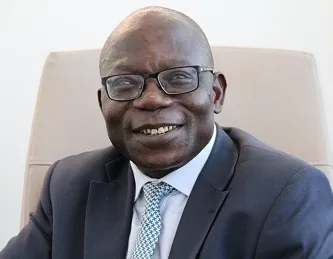The Economic Community of West African States (ECOWAS) has expressed concerns about potential violence in Ghana’s upcoming general elections scheduled for December 7, 2024. This warning comes from a recent Pre-election Fact-Finding Mission aimed at evaluating the country’s preparedness for the polls.
The ECOWAS Mission attributes the anticipated tension and possible violence to a pervasive “mistrust” of key state institutions, including the Electoral Commission (EC), the Judiciary, and the Police Service. These concerns emerged after meetings with leaders and managers of these institutions last month.
The Mission also highlighted that “misinformation, disinformation, and inciteful language” are major security threats. Certain political figures and candidates were identified as sources of inciteful rhetoric, with the media, including social media platforms, being flagged as channels for spreading potentially harmful content.
A draft statement circulating on social media notes: “The political environment in Ghana remains tense due to mistrust in key institutions involved in the electoral process, including the EC, the Judiciary, and the Police Service.”
The Mission expressed specific concerns regarding the recent appointment of a new Deputy Inspector-General of Police (DIGP) for Operations on July 17, 2024, just months before the general elections. This development has raised suspicions about the government’s motives, particularly given earlier rumors about a possible change in the current Inspector-General of Police (IGP), who is perceived as generally fair and firm.
The Mission, led by ECOWAS Commissioner for Political Affairs, Peace, and Security, Ambassador Abdel-Fatau Musah, included a technical team from the ECOWAS Directorate of Political Affairs. Their visit, which took place from July 21 to July 29, 2024, aimed to assess the political environment, evaluate the preparedness of electoral bodies, engage with political actors, and support efforts to create a conducive environment for free, fair, and transparent elections.
The Mission engaged with various stakeholders in Accra, including the ECOWAS Resident Representative, the Deputy Minister for Foreign Affairs, the Chief Justice, and the Elections Management Committee of the Judicial Service. They also met with the Electoral Commission (EC) of Ghana, leadership of the opposition National Democratic Congress (NDC) and the ruling New Patriotic Party (NPP), the National Commission for Civic Education (NCCE), the Chair of the National Media Commission (NMC), and representatives from media organizations.
The Mission’s findings include:
Voting Stations: A total of 38,621 voting stations will be established across all 16 regions of Ghana. Voting is scheduled from 8:00 a.m. to 5:00 p.m. on December 7, 2024. By law, the EC has up to 72 hours after polls close to announce results, though it often aims to declare results within 24 to 48 hours.
Inter-Party Advisory Committee (IPAC): The EC has been engaging with stakeholders regularly through IPAC. However, some political parties have expressed mistrust and requested further discussions on electoral concerns.
Despite acknowledging real challenges, the Mission recognized the progress made by the EC in preparing for the elections, including the completion of voter registration exercises and other key milestones. However, it also pointed out concerns about political misconceptions, profiling of EC Commissioners and security agencies, media misuse, and inciteful language by some political leaders.
The Mission’s recommendations to the ECOWAS Management include:
High-Level Engagement: Deploy a high-level back-channel mission to address concerns with political stakeholders, especially major presidential candidates, the Police Service, the EC, and the Supreme Court. Promote dialogue to build trust among stakeholders.
Observation Teams: Deploy long-term observers to monitor the electoral process and provide early warning information. Complement this with short-term observers to cover as many constituencies and polling stations as possible on Election Day. Consider recommending observers for the national tabulation/collation room to build confidence in the results.
Addressing Misinformation: Develop strategic plans to counter misinformation and disinformation, particularly in remote areas. Collaborate with domestic observation groups for comprehensive coverage.
Support and Mitigation: Provide technical and logistical assistance to institutions like the EC, NCCE, CSOs, and the media. Support initiatives to combat hate speech and disinformation, particularly on social media, through targeted engagement with media personalities and civil society leaders.




